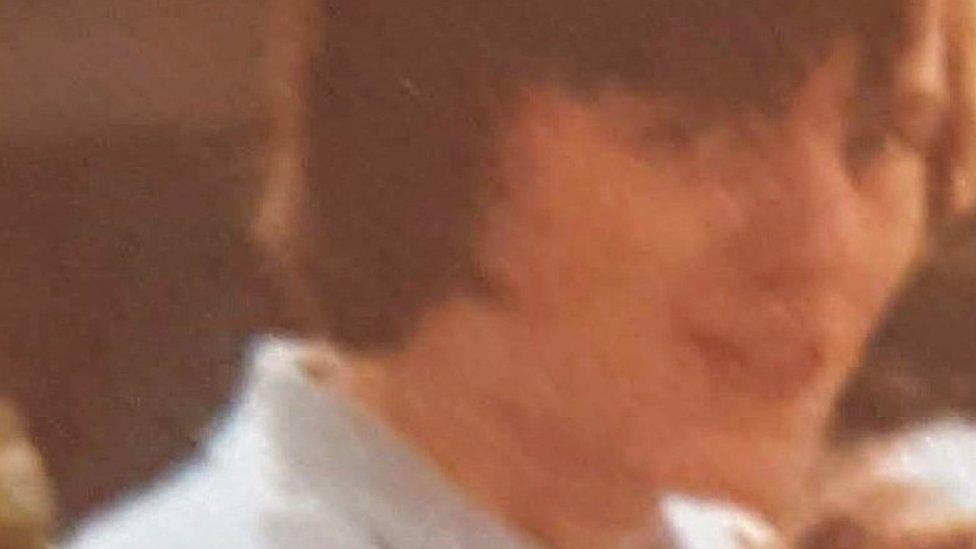Infected blood inquiry: Son 'will never come to terms' with scandal
- Published
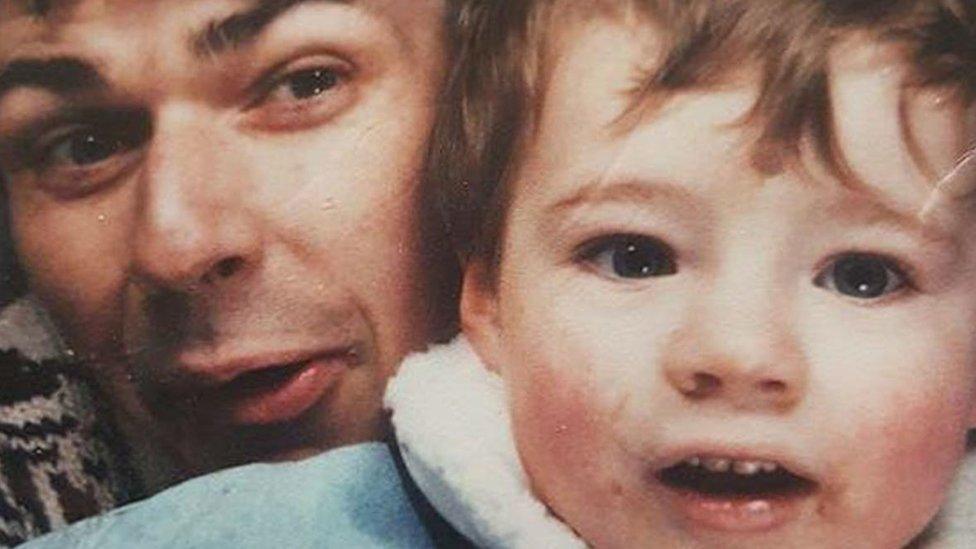
Jason Evans was four when his father, Jonathan, died in 1993
A man who led calls for an inquiry into the contaminated blood scandal has said he will never come to terms with the events that caused his father's death.
Jason Evans was four years old when his dad Jonathan died in 1993, having contracted both HIV and hepatitis C at the Oxford Haemophilia Centre.
Mr Evans founded campaign group Factor 8 and successfully lobbied the government for a full public inquiry.
The inquiry began in 2018 and he spoke to the BBC to mark its conclusion.
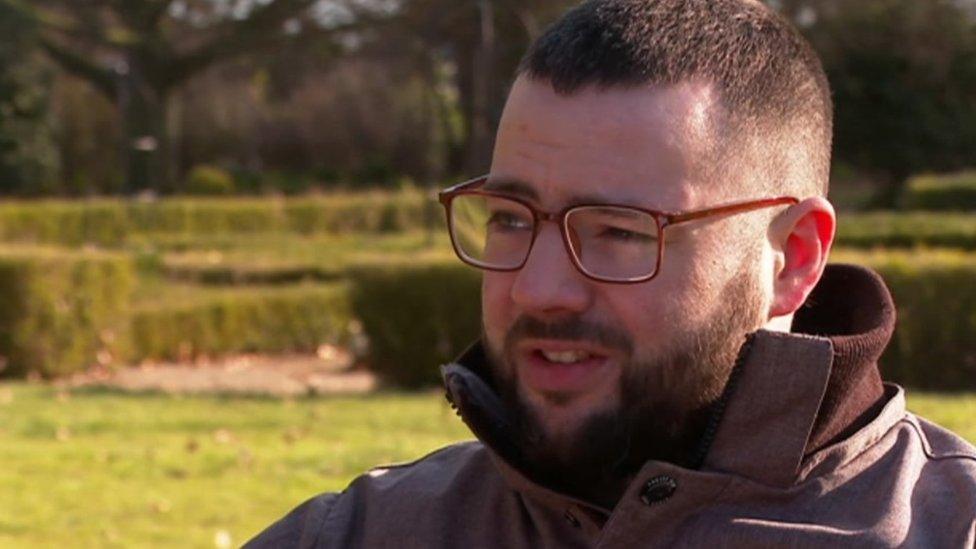
Jason Evans said he hoped recommendations made after the inquiry would be immediately implemented
Mr Evans' father was among thousands of people to be infected by contaminated blood in the 1970s and '80s after being given a blood clotting agent called factor VIII.
At the time, the medication was imported from the US where it was made from the pooled blood plasma of thousands of paid donors, including some in high-risk groups, such as prisoners.
If a single donor was infected with a blood-borne virus such as hepatitis or HIV then the whole batch of medication could be contaminated.
Official documents presented to the inquiry revealed this therapy was given as part of clinical trials.
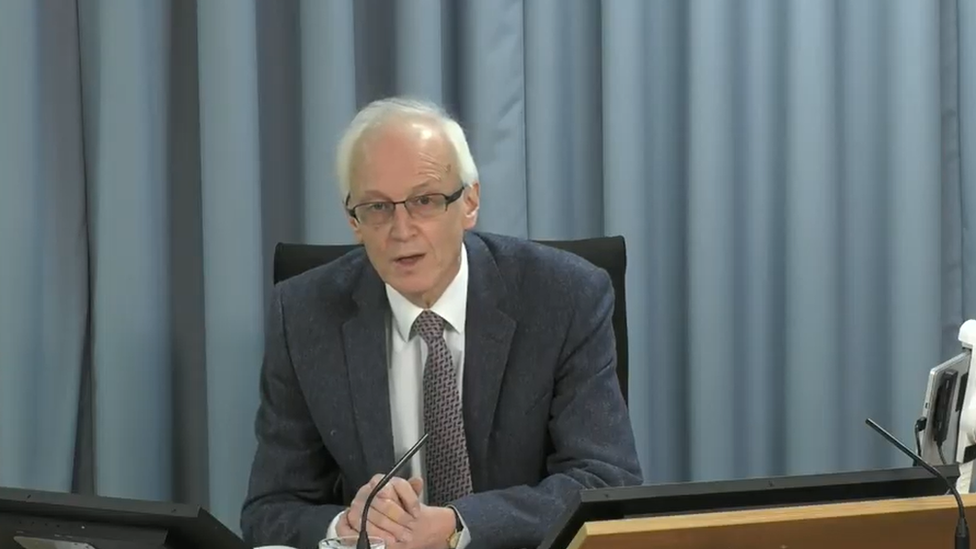
The inquiry was held before former High Court judge Sir Brian Langstaff
Mr Evans, who lives in Coventry, said he still found it difficult to accept that his father and the others infected were tested unwittingly as part of experiments.
"It's something I don't think I'll ever come to terms with," he said.
"That whole area of people being used as research subjects to study the transmission of hepatitis through these blood products without their consent, without their knowledge, is just crazy.
"Something that I think about all the time is that the majority of people infected with hepatitis C and HIV are dead so most of the people this inquiry is really about - or a large proportion of them - aren't here."

The inquiry was set up to examine:
Why people were given infected blood products
The impact on their families
How the authorities responded
The nature of any support provided following infection
Questions of consent
Whether there was a cover-up

Mr Evans said the death of his father and others had been "completely avoidable".
He added: "Pharmaceutical companies skipped safety steps for reason of cost, and more importance was given to convenience than safety.
"I do believe ultimately that's what this scandal almost entirely comes down to."
Mr Evans said he hoped the recommendations made after the inquiry would be implemented immediately, but feared the campaign might just be entering its "next phase".
The report by the inquiry's chair, Sir Brian Langstaff, is expected this summer.
It will then be down to the government, which gave interim payments of £100,000 to about 4,000 victims last year, to act on his recommendations.

Follow BBC South on Facebook, external, Twitter, external, or Instagram, external. Send your story ideas to south.newsonline@bbc.co.uk, external.
Related topics
- Published30 July 2022

- Published24 January 2022
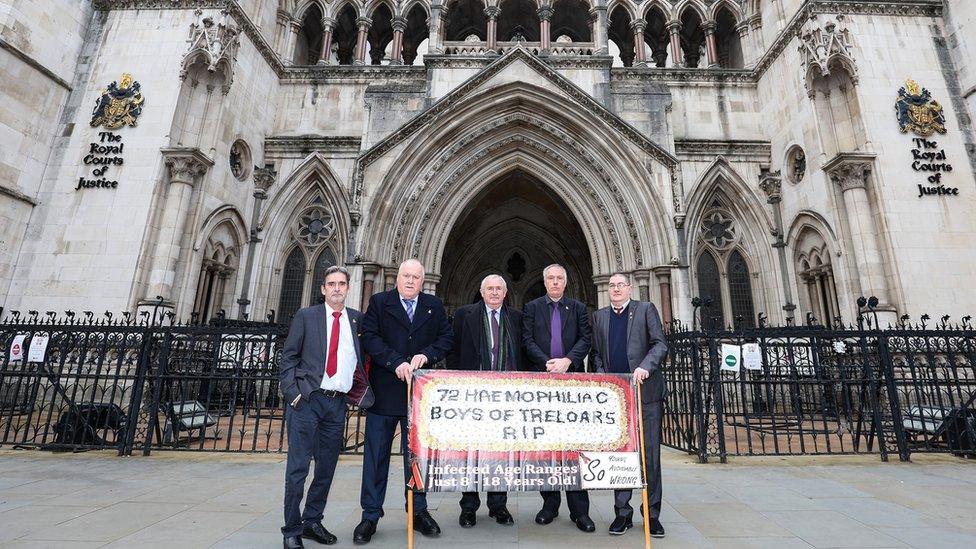
- Published2 February 2021
